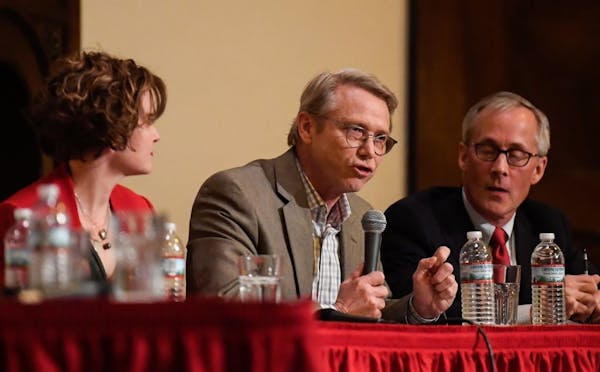Amid a heated election campaign in Minneapolis, activists have thrust a new issue into the debate: goats.
City Council candidates received a questionnaire last week from a group called the Minneapolis Alliance for Goats, asking them to take a position on whether residents should be allowed to raise the animals within the city limits.
"What do you see as the main barriers to small scale goat husbandry, and what specifically will you do to influence their current prohibited status?" the questionnaire asks.
Candidates already have dealt with a flurry of questionnaires from unions and other groups, but this is the first questionnaire from goat advocates.
Adam Arling, who started the advocacy group a couple of years ago and now lives in St. Paul, said that he comes at the goat issue as a way to create a more equitable food system and that he's hoping to gauge candidate interest in loosening the rules to allow people to raise goats in their backyards.
"We know there's a lot of other issues out there, more serious and pressing issues," Arling said. "But that doesn't mean we can't look at goats."
Goats already have made a substantial incursion in the Twin Cities, mostly as a means of combating invasive flora.
St. Paul employed 30 of them starting in April to meander along the Mississippi River and eat buckthorn. In May, the Minneapolis Park and Recreation Board released about 80 young goats and adult female goats on a 6-acre parcel at Cedar Lake Regional Park for the same purpose.
Use of goat labor can cause problems for public institutions, as was shown when AFSCME filed a grievance against Western Michigan University, arguing that goats used to clear underbrush are scab labor taking work away from laid-off union members.
What the Minneapolis Alliance for Goats wants is for the city to allow people to raise small goats in their backyards, something St. Paul already allows.
Minneapolis has historically been more resistant to the idea. City Council members voted in 2011 to remove a few lines from an agricultural policy plan about studying the possibility of "hoofed animals."
The questionnaire asks what regulations should be put in place for the safe raising of goats, and it asks candidates to explain their stance on raising goats for meat and butchering.
"This candidate questionnaire is a way for us to see who's going to take us seriously right out of the gate," Arling said, "and who we might need to persuade."
Adam Belz • 612-673-4405
Twitter: @adambelz

Trail section at one of Minnesota's most iconic spots closing for rehab

Will 'shotgun only' zone for deer in southern Minnesota be abolished?

Four Minnesotans catch salmonella in outbreak linked to basil sold at Trader Joe's

